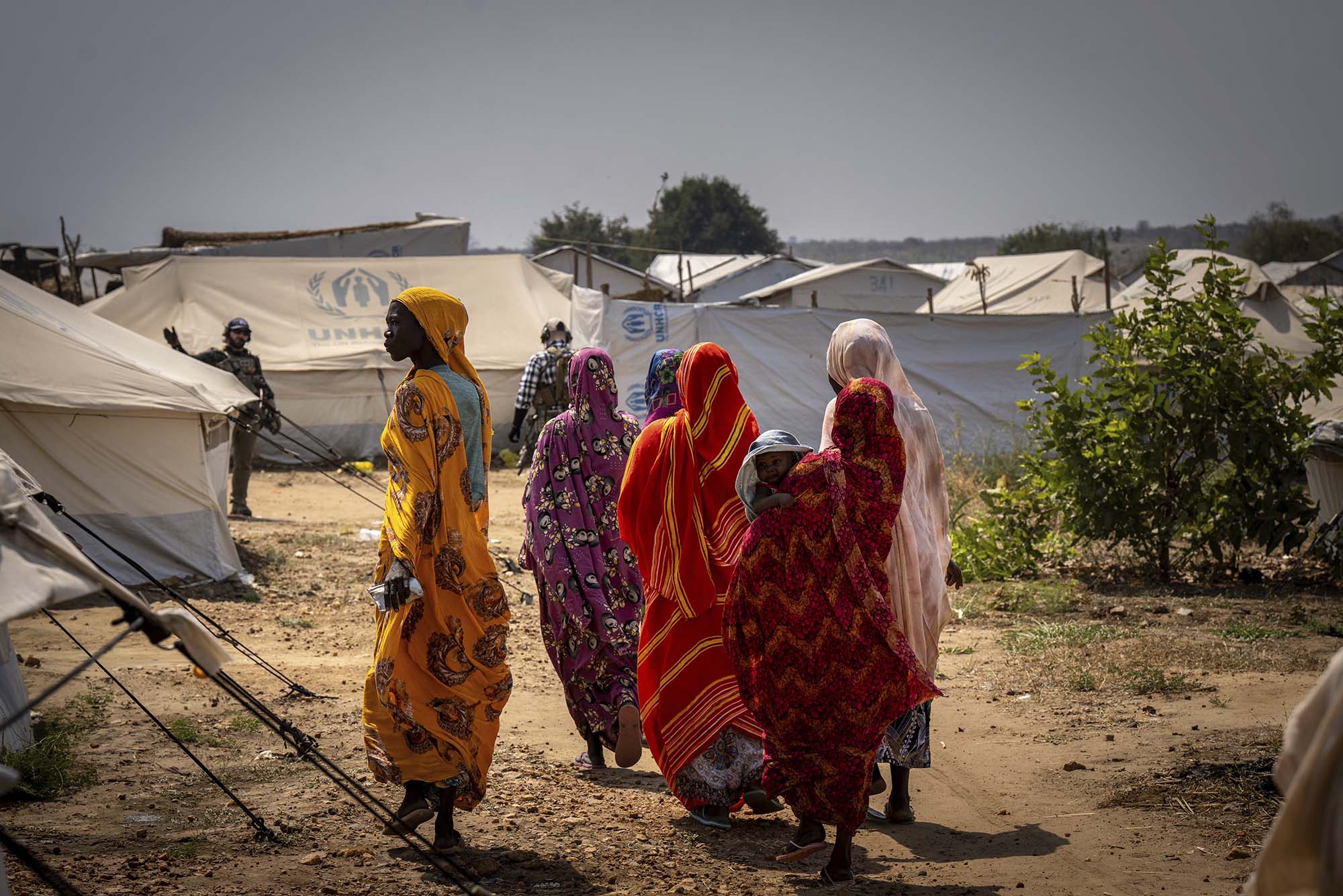In North Kashmir, the violence along the border has forced many families to abandon their homes. As tensions between India and Pakistan escalate, people living in places like Uri, Tangdhar, and Karnah have been left with no choice but to flee. Families are caught in a cycle of fear and uncertainty, their lives disrupted by the constant threat of shelling.
The situation worsened in the days following Operation Sindoor, launched on May 7. Retaliatory strikes from Pakistan hit border villages, and families were left scrambling to find safety. One such family, from Uri, was on the move when their vehicle was hit. Nargis Begum, a mother of six and a school worker, was killed in the attack. Three others from her family were injured, and the tragedy has shaken the entire village.
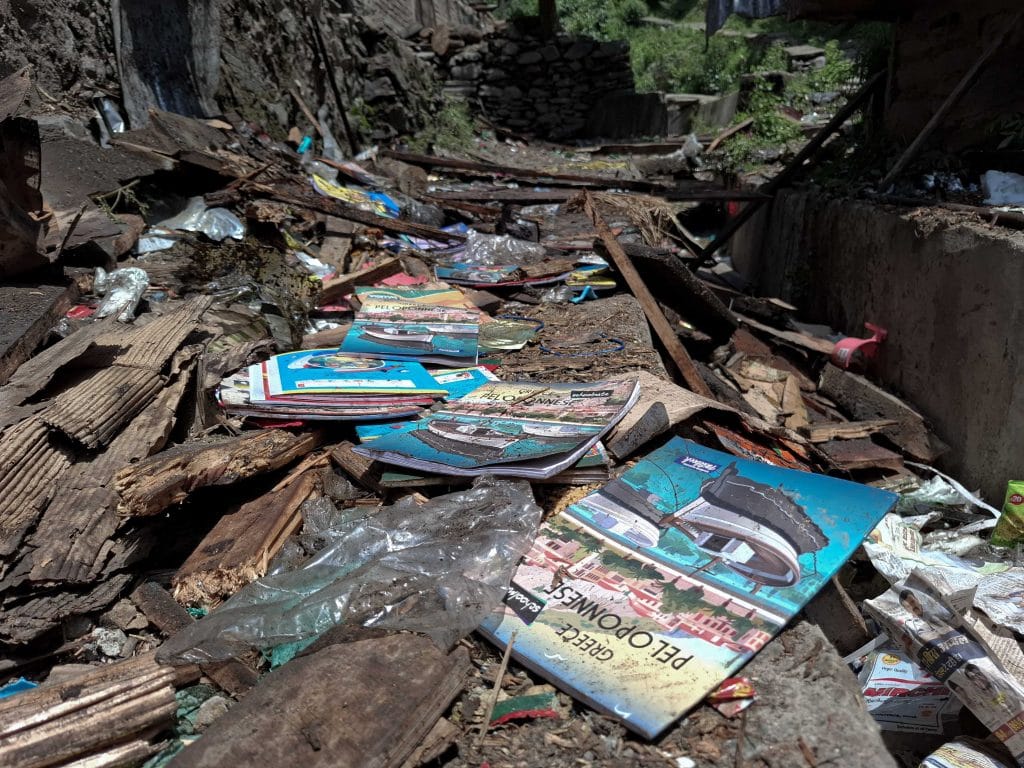
“We Ran With Nothing But Our Children”
“They were running to escape, hoping to be safe,” said Mohammad Shafi, a relative. “Who could have imagined this would happen to them?” Nargis’s daughter, Sanam, sat silently, tears soaking her face. Her wedding was supposed to happen in just a few weeks. “How will I manage without her?” she whispered, her grief palpable.
She Was Our Mother, Our Future
Nargis’s aunt, Tasveer Begum, looked at the larger impact. “Nargis took care of her children at school. Who will look after her daughters now? Her husband is sick. Their whole future has been stolen,” she said. With a heavy heart, she appealed to the Indian Prime Minister: “Don’t let this family disappear into silence.”
In another village, Lagama Uri, Akhtar Parmeen recalled the day a shell destroyed their shops. “Everything was gone in an instant. I’ve never seen destruction like that,” she said, her voice trembling. She, along with her family, was evacuated with the help of the district administration. Despite the danger, they had little choice but to leave everything behind.
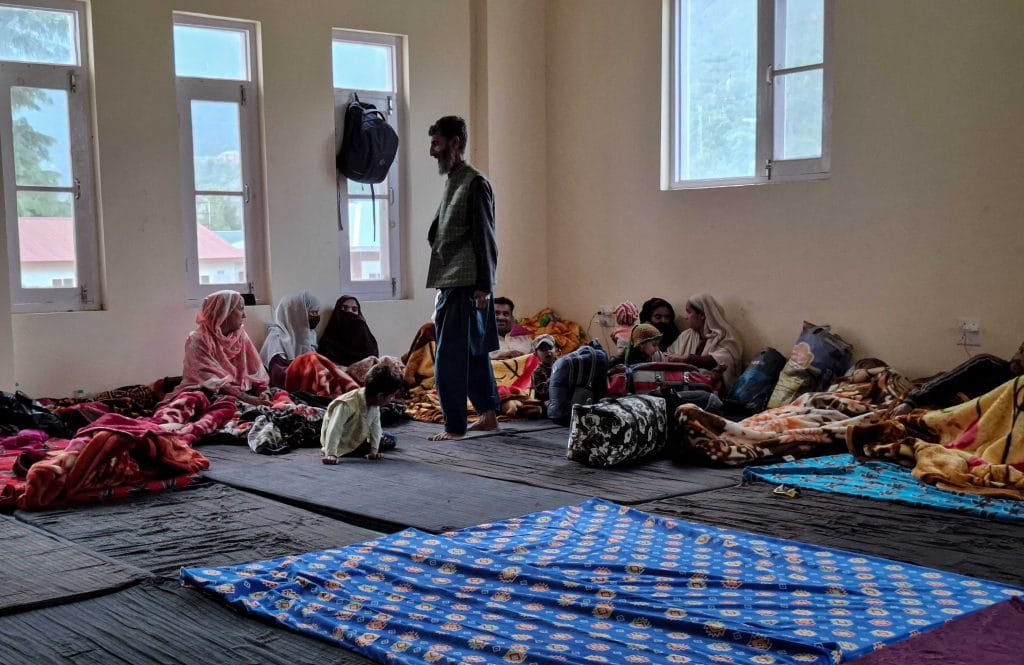
“My priority was my family’s safety,” said her husband, Sakhi Mohammad. “I didn’t care about our belongings. I left everything, our animals, our home. It felt wrong, but what else could I do? I just want to return and take care of them when it’s safe again.”
For now, the family has found shelter at Government Degree College Boniyar. “We’re thankful for food, shelter, and medical care,” Parmeen said, “But the fear doesn’t go away. We won’t return until it’s truly safe.”
Further along the border, Halima Begum held her grandchild close as she recalled the shelling in her village. “I didn’t know what to do. I just held my baby, hoping we could survive,” she said. After days of shelling, her family managed to escape. They’re now staying with relatives in Uri.
“We had to leave everything behind, even the animals,” Halima said. “I didn’t feel like I could take care of anyone. We just huddled in fear, hoping we’d survive.” Her daughter-in-law, Ishrat, worried about those left behind. “What about them? They’re still there with nothing. Anything could happen.”
I Just Held My Baby and Prayed
Halima’s young granddaughter, Ayat, who is just seven, shared her fear. “Every time I heard a shell, I screamed, ‘Bachao (Save me)’. I want to go back to school. I miss my friends. Please, let us live without fear.”
For many, the trauma is lasting. Masrat, from Bandi Uri, said her children have been unable to sleep or eat. “They cry all the time. It’s hard to stay strong when all I can think about is keeping them safe.” When shells hit near their house on May 9, Masrat knew they couldn’t stay. “It felt like we were waiting for death. I had no choice but to leave.”
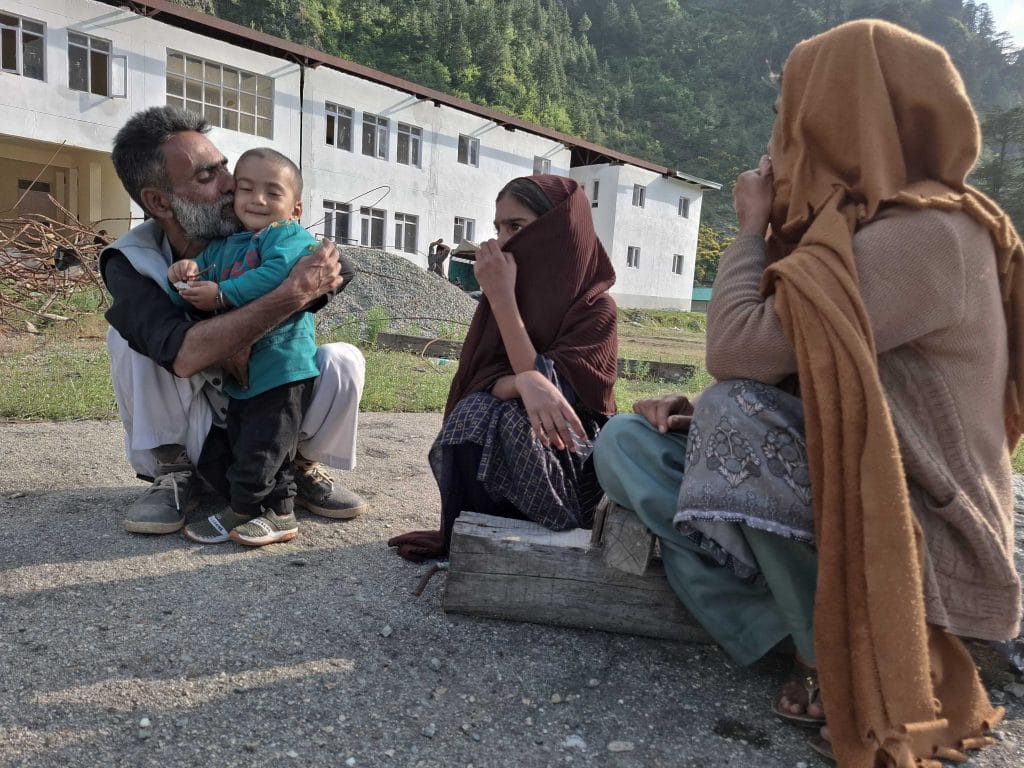
With little more than the clothes on their backs, Masrat focused on the immediate need for food and shelter. “If there’s one thing we need, it’s peace. Only then can we even think about the future.”
Her voice, though calm, betrayed the exhaustion of a mother who has borne too much. “If both countries really want peace, they need to stop the fighting. We’ve lost too much already. We just want to live, without fear.”
Across the border villages, families like Masrat’s are left with nothing but memories of homes once filled. These stories are repeated again and again of families torn apart, children waking to the sounds of violence, and communities whose future is uncertain. Yet amid the destruction, the desire for peace remains strong.
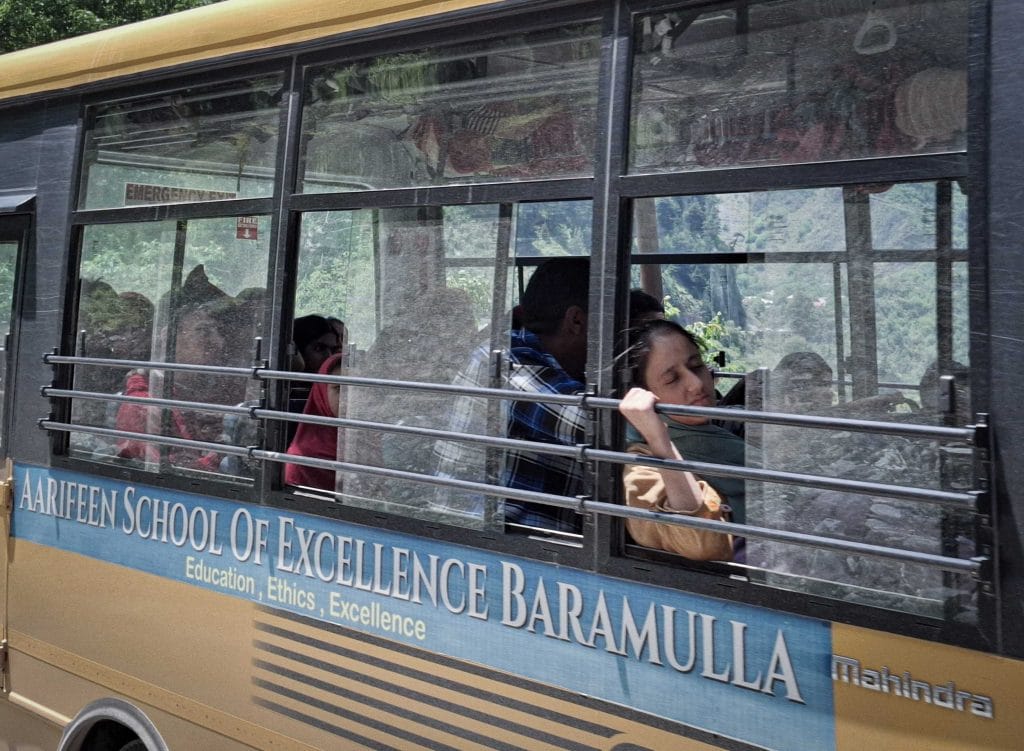
“We’re Safe for Now, But Not Home”
Zubaida Begum, who spent three days sheltering with her four children, spoke of the terror they faced. “The sounds were unbearable. I didn’t know how I could protect them. My husband was far away, in Minamarg, Kargil. I had to manage on my own,” she said. When she finally managed to move to a nearby mosque, it was only a temporary reprieve.
She, too, fled to a shelter, now at the Mountain Valley Educational Institutions in Sheeri. “I wanted to go home, but they won’t let us,” she said. “Everything’s left behind. My house, my animals. I don’t know what’s left.”
Zubaida, like many others, hopes for a lasting ceasefire. “If there’s peace, I want to see if my house is still standing. I don’t want to lose everything again. Please, let this ceasefire hold. I can’t keep risking my children’s lives.”
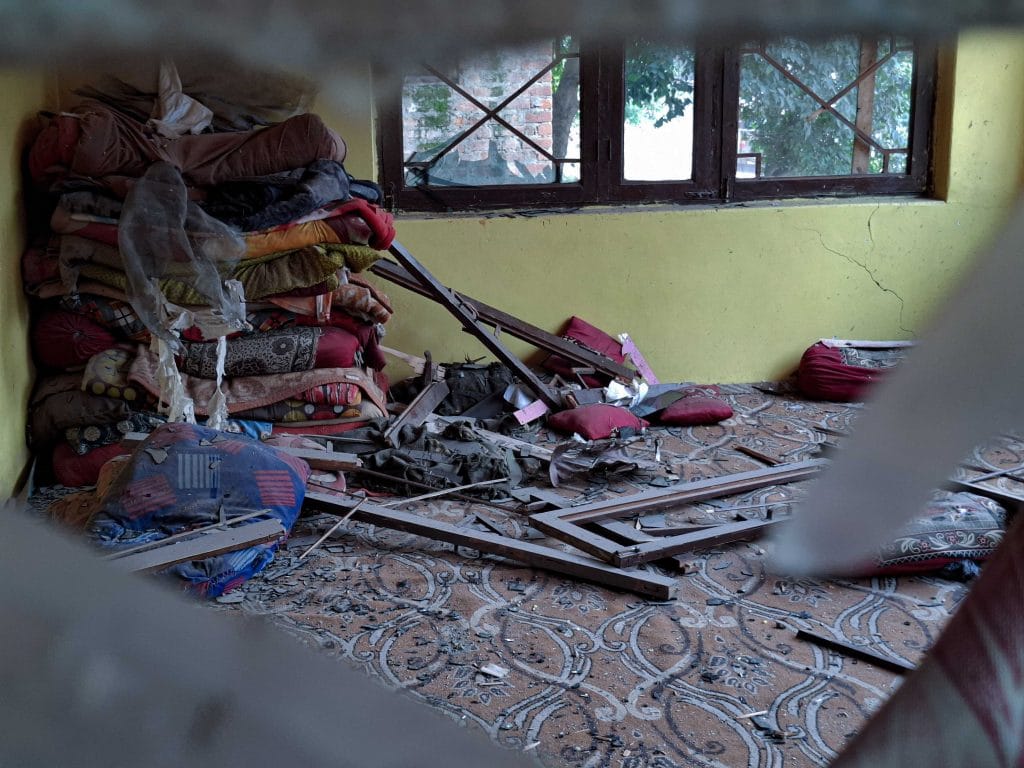
For the women in these border villages, life has become a constant struggle. They balance the duties of keeping families together with the daily threat of violence. They look after children who can’t sleep at night from the sounds of distant shelling, cook meals when there’s food to be had, and care for elderly relatives while always staying alert for the next explosion or raid. Many of them have been forced to leave their homes before, sometimes multiple times, each time carrying the weight of loss with them.
In the midst of their hardship, they aren’t asking for much, just the right to live peacefully, without fear. All they want is the chance to see their children go to school, to cook meals for their families, to sleep at night without wondering if they will survive the next shelling.
In the quiet moments between the blasts, they continue to hope for peace, for safety, and for the chance to rebuild their lives. But as long as the violence continues, that hope remains fragile. For the women of the border, the only thing certain is the desire for peace.

